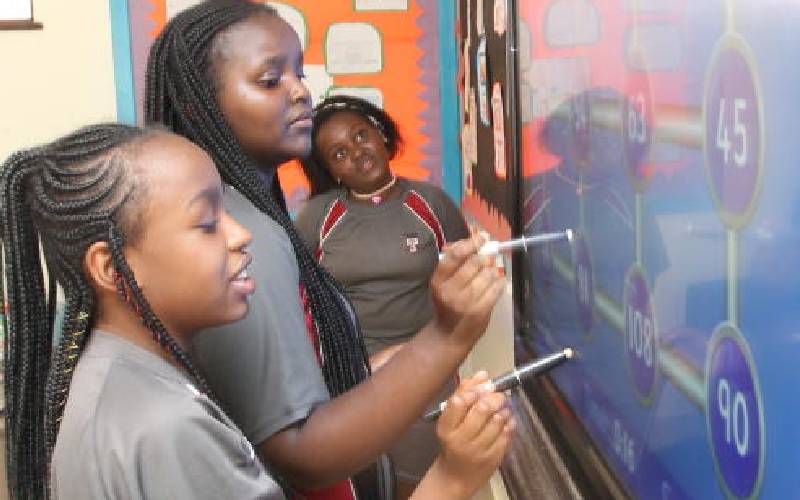×
The Standard e-Paper
Home To Bold Columnists

Students at Woodcreek School writing on a smart board. [Jonah Onyango, Standard]
Having trained as an accountant, Peter Karoki never thought he would end up being an influential investor in the education sector.